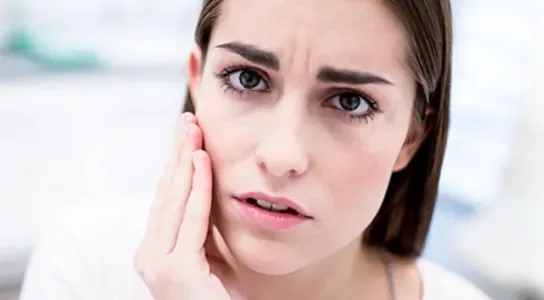
What is Bruxism? Teeth Grinding Symptoms, Causes & Treatments
Have you ever woken up with a sore jaw in the morning and wondered why? If you’ve also heard popping and clicking noises when you chew, the culprit may well be teeth clenching. The technical term for teeth grinding or clenching is bruxism.
Sleep bruxism is the specific term for when you grind your teeth in your sleep. It may be hard to know if you are grinding teeth at night, but pain in your jaw or neck may indicate that you may be involuntarily clenching your teeth during your sleep cycle.
Instead of grinding and clenching teeth through the night, people who suffer from sleep bruxism will experience short occurrences of chewing movements and teeth grinding in their sleep, and this may not happen every night.
Bruxism is also more likely to be seen in children and teenagers than adults and may affect infants and toddlers from as soon as their teeth start coming through. Beyond mild discomfort, a baby grinding their teeth can cause dental damage and may lead to teeth moving out of alignment.
Bruxism (Teeth Grinding) Symptoms
As bruxism often occurs while you are sleeping, you may be unaware that it is happening. This means it’s important to understand the signs of teeth grinding to look out for. The following list will let you know the most common bruxism symptoms to be aware of:
A key symptom of teeth grinding is worn down enamel; this may be spotted by a dental professional. You may also notice teeth that are chipped or worn down and have greater sensitivity when chewing.
Stiffness and pain in the joints of the jaw and the muscles around it are often symptoms of jaw clenching.
Waking up in the night or having difficulty sleeping, headaches and facial pain are also common bruxism symptoms.
Bruxism Causes
You may well be wondering, why do people grind their teeth? The most common bruxism causes have been identified as feeling stressed, anxious, or angry.
Alongside these reasons, teeth grinding causes may also include existing dental issues like missing or broken teeth, or your bite being out of alignment.
Medication such as antidepressants can sometimes cause teeth grinding, and it can also be a side effect of medications used to treat disorders including Huntington’s or Parkinson’s diseases.
How to Stop Grinding Teeth?
Depending on your reasons for experiencing bruxism, dental professionals may recommend different treatments on how to stop grinding your teeth or clenching your jaw.
Physical protection such as a mouth guard is a common way to stop teeth grinding. Mouth guards, or mouth splints, create a barrier between your teeth and ensure that the pressure on your jaw is evenly distributed. Mouth guards for teeth grinding can be purchased over the counter but should generally be fitted by a dentist for the best quality.
In the case of stress-induced bruxism, the most effective way to prevent teeth grinding would be to work out the root causes of any current stress. Ways to deal with these stress sources may include relaxation exercises, massages, or simply getting a good night’s sleep. You could also seek psychological treatments, such as therapy or counselling.
So if you’re curious about how to naturally stop grinding your teeth in your sleep, try all of these treatments described above possible without medication. However, if you are suffering from pain or swelling in your jaw caused by bruxism, an anti-inflammatory painkiller, such as ibuprofen, may provide some relief.
Teeth Grinding in Children
Teeth grinding in children is more common than in adults and often coincides with the time that they lose their baby teeth. However, if your child is grinding their teeth beyond the age of five, experts recommend that you take your child for a dental check-up.
The reasons for children grinding teeth can be a response to pains such as a toothache or teething. Misaligned teeth can also lead to your toddler grinding their teeth. If your child tends to be hyperactive or happens to be dealing with stress, they may also be more likely to display bruxism symptoms.
To prevent teeth grinding in your child, there are several simple solutions you can try. Reduce their stress levels with a soothing bedtime routine, ensure your child has a healthy balanced diet and that they drink plenty of water, as dehydration can also be a cause of kids grinding teeth. If these tips don’t work for you, the final step should be a night guard which is moulded to your child’s teeth.
Sources:
https://www.mayoclinic.org/diseases-conditions/bruxism/symptoms-causes/syc-20356095
https://www.webmd.com/oral-health/guide/teeth-grinding-bruxism
Related Articles
Sign Up
for expert advice and exclusive offers



